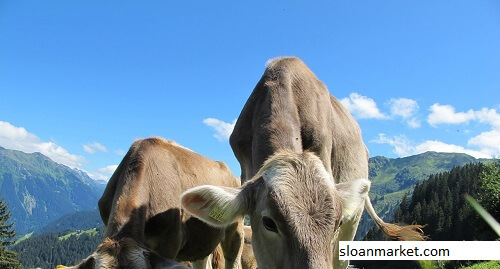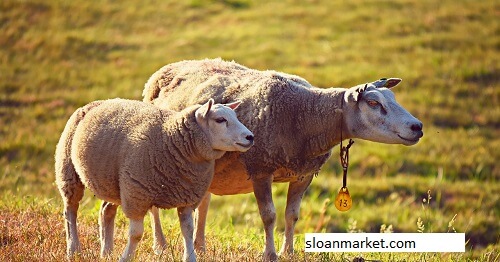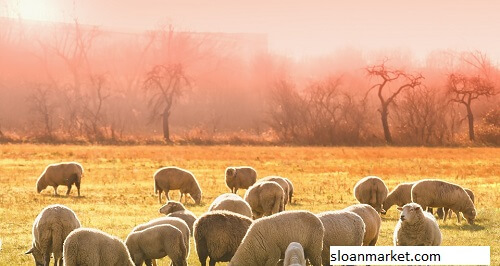Burwell Livestock: An Agribusiness and Community Hub
Market:
Burwell Livestock Market is a livestock that has long been an activity source for farmers, traders, and agricultural enthusiasts at large, situated in the very heart of Cambridgeshire, UK. It is based on the principle of offering a service of great importance to the local farming community by connecting both buyers and sellers who would be engaged in the trading of livestock under-regulated and transparent procedures. This market not only helps keep the local economy alive but also builds a community between its users and them.

This article covers the history, how it operates, and why this is important, as well as answers some of the more commonly asked questions to give you an idea of what the offers.
History Origins of Burwell Livestock :
Market:
- Its history is traced back to the early 20th century when a need to create a central place to sell and trade livestock became more pronounced. Since agriculture was the backbone of the local economy, particularly in the rural areas of Cambridgeshire, the farmers and traders required a place to adequately exchange goods.
- Though the date of its establishment is still a matter of dispute, it is relied on that the was initially an unorganized place for the farmers and merchants, where their auctions were held in an open area. Since then, the market expanded in terms of size and importance and began to embrace larger numbers of livestock such as cattle, sheep, pigs, and many more.
- Burwell Livestock had now grown into an auction house fully operational by the mid-20th century. This was to mark the beginning of more prominent work on covered sale rings, livestock holding pens, and better access roads for large transport vehicles. They also developed more streamlined procedures and further met the increasing demands of the farmers.
Burwell Livestock Market Operations:
Market:
While it performs several functions in the agriculture sector, the main focus has always been on trading livestock. It happens to be an auction house in the sense that competition for buying and selling livestock takes place through public bidding up to fair and competitive prices. Sellers can consign their animals for auction while buyers, another farmer, meat processor, or any other commercial enterprise can then bid on the ones they wish to buy.
Species Offered:
Market:
Burwell Livestock Market typically trades in several species including:
- Cattle: This serves as a large for buying and selling both slaughtered ready (finished) and breeding cattle. Both beef and dairy cattle are typically sold at Burwell.
- Sheep and Lambs: The sheep trade is one of the major business dealings at Burwell. Sheep are traded for breeding purposes and also for slaughtering.
- Livestock such as Pigs: Though rarely seen, pigs too are bought and sold, mainly with farming and breeding in mind
- Other Livestock: Poultry, Goats, and other livestock will be sold at the market from time to time with demand.
Auction Process:
Market:
The Burwell sale process is a fast-paced competitive sale in which animals are consigned to a certain sale ring according to the species. Animals are then sold by groups in an auction led by a licensed auctioneer. Buyers-audited mainly are farmers or traders.
The price of every lot sold is determined by the highest bid received during the auction, and after the sale, the buyer is expected to pay for the price agreed on. The auction format, therefore, guarantees prices obtained to be reflective of current market conditions and the demand for that type of livestock.
Key Services and Facilities:

Market:
- Over time: Burwell Livestock has expanded its structures to ensure the availability of necessities to both buyers and sellers. Some of the crucial characteristics of this include the following:
- Auction Rings: This market normally conducts several auction rings, meaning several sales take place simultaneously. This makes it easy to execute operations and ensure that livestock is sold in the shortest time possible.
- Livestock Holding Pens: To provide space for larger stock numbers before auctioning, Burwell has relatively widely spread holding pens that are regularly cleaned and kept clean for the welfare of the animals.
- Transportation and Parking: This is one of the market’s important facilities due to the scale of its operation. Burwell Livestock has enough parking for both commercial and private vehicles, among them large transport trucks. The location is easily accessible, thus convenient for traders who have just come from the nearest regions.
- Veterinary and Inspection Services: Welfare and health are therefore critical in the livestock industry. That is why Burwell Livestock has many mechanisms aimed at making sure the animals sold to the clients are healthy and wholesome. All the animals undergo veterinary inspection.
In addition to the auction, Burwell hosts trading stalls whereby small local traders could sell items such as farming inputs, feed, equipment, and other materials that are considered important for agriculture. In essence, it is a marketplace accommodating all needs.
Economic and Community Impact:
Market:
Burwell Livestock Market is an economic resource to the area. The facility serves as an important part of the local supply chain, where a buy/sell exists among the farmers and other agricultural businesses in the area. This means it supports directly and indirectly several agricultural-related sectors like transport, veterinary care, feed production, and meat processing.
Employment and Local Businesses:
Market:
It also provides both direct and indirect employment. Personnel is required to conduct and coordinate the auction, monitor animal welfare, maintain buildings, and perform clerical work. Local businesspersons, including feed stores, transportation companies, and firms that supply farming equipment also benefit from the continuation of the market.
Apart from being economically relevant to the community, the also adds to the social aspect. Many farmers and traders gather to share ideas, collaborate on farming techniques or business opportunities, and build long-term relationships with buyers and sellers. At times, many of these buyers and sellers come together, which in turn makes them a significant hub for the farming community in the region.
The Market Today, Its Modern Challenges, and Future Outlook:
Market:
Burwell Livestock, an institution of the Cambridgeshire agricultural landscape for more than a century, itself faces modern-day issues. This is due not only to changed consumer demand and more stringent regulations but also significant changes in practice within the agricultural sector. Another challenge might come with the increasing number of online platforms dealing with livestock trading and constantly fluctuating prices impacting the physical ‘ functions, such as Burwell.
Still, this market has proven strong in the face of such changes and remains open, still catering to its community needs. Improvements are soon to be made to the infrastructure, including possible digital integration for auctions to keep pace with modern farmers.
Frequently Asked Questions:
Market:
1. How do I sell livestock at Burwell Livestock Market?
Selling Livestock To sell livestock at Burwell, you will first need to register with the as well as any regulations that are required. Livestock will be inspected to ensure they meet health and welfare standards before they are allowed to be auctioned. The consignor forms need to be filled in and bring them to the market on their sale day. staff will take care of everything concerning the auction.
2. Is it possible for me to purchase live stocks at Burwell Livestock?
Yes, anyone who is qualified and warranted to possess and care for animals can purchase them in Burwell. To do so, a person needs to be registered in Burwell and acquire his number as a buyer. It will be even better if he or she is aware of the procedures of the auction whereby persons interested in acquiring live stocks through the auction process, including the probability of biddings, and is prepared for the costs imposed upon acquiring the stocks.
3. Is there any regulation process when it comes to the animal health and welfare of Burwell?
Yes, the Burwell Livestock Market does exercise rigid regulations when it comes to animal health and welfare. All the livestock being sold in that should be saleable and in good veterinary inspection standards. Its veterinary inspectors check at the time of the health and disease-free status of its animals before letting them get sold.
4. Does Burwell Livestock give online auctions?
Until now, Burwell Livestock is predominantly a physical, on-the-hand auction, and the considered digital solution for remote bidding and online sales as the online grows. For the latest updates, please visit the market website or call their offices.
5. How many times does the Burwell Livestock hold auctions?
The Burwell Livestock Market typically holds its planned auctions throughout most of the week; it auctions off various animals on different days, and on such an occasion, there might be some variations in scheduling. Thus, specific dates for future auctions should be sought after through the website or directly through the office.
Conclusion:

Market:
Burwell Livestock Market remains one of the inalienable assets within farming societies in Cambridgeshire. With such a long history of rich diversity in trading livestock and the importance it holds in local economies, it continues to be a very important hub not only for farmers but also for traders. The fact that the is forever modifying its shape according to new times while remaining true to its core mission is what provides it with success in this aggressive landscape of agriculture. Whether you are a buyer, a seller, or just an interested individual in the agricultural sector, Burwell provides a dynamic and productive environment that highly contributes towards maintaining the region’s heritage in agriculture.